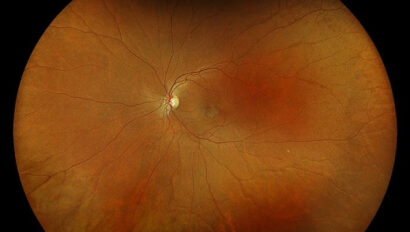
Simon Eye is growing! Now welcoming patients at our Elkton, MD location!
Simon Eye is growing! Now welcoming patients at our Elkton, MD location!

On April 8, 2024 a total solar eclipse (where the moon crosses directly in front of the daytime sun) will be visible for most of North America. Before it arrives there are a few key things you should know:
Read below to find out more.
The sun is never completely blocked by the moon during an annular solar eclipse – and it’s never safe to look directly at the sun without proper eye protection.
“Eclipse blindness” occurs when eyes are exposed to the sun and the light exposure damages or destroys cells in the retina. These retinal burns, also known as solar retinopathy, can be temporary or permanent with no associated pain. Sunglasses, unfiltered telescopes, and polarizing filters are not safe to use to view an eclipse.
Use approved solar eclipse viewers. The only safe way to view a partially eclipsed sun is through special-purpose solar filters, such as “eclipse glasses” or viewers that meet international standard ISO 12312-2 for safe viewing. Sunglasses, smoked glass, unfiltered telescopes or magnifiers, and polarizing filters are unsafe. Inspect your eclipse glasses or handheld viewer before use – if torn, scratched, or otherwise damaged, discard the device.
Technique of the pros. Stand still and cover your eyes with your eclipse glasses before looking up. After viewing, turn away and remove your glasses or viewer — do not remove them while looking at the sun. If you normally wear eyeglasses, wear your eclipse glasses over them, or hold your handheld viewer in front of them.
Visit your doctor of optometry. If you should experience discomfort or vision problems following the eclipse, visit your local doctor of optometry for a comprehensive eye examination.
Keep in mind! Eclipse glasses are NOT regular sunglasses – regular sunglasses, no matter how dark, are not safe for viewing the sun.
It can take a few hours to a few days after viewing the solar eclipse to realize the damage that has occurred. If you experience discomfort or vision problems following the eclipse, visit your Simon Eye location for an in-person, comprehensive eye exam. Some common symptoms include:
All symptoms should be treated as urgent until viewed by your Simon Eye optometrist. If you suspect an eye or vision problem, make an appointment immediately – this is the best way to combat potentially severe complications, including vision loss.
The only safe way to look directly at the uneclipsed, partially eclipsed, or annularly eclipsed Sun is through special-purpose solar filters, such as “eclipse glasses” or handheld solar viewers. Ordinary sunglasses, even very dark ones, are not safe for looking at the Sun; they transmit far more sunlight than is safe for our eyes.
Put your eclipse glasses on over them or hold your handheld viewer in front of them.
Click here to learn more about buying the right eclipse eye protection.